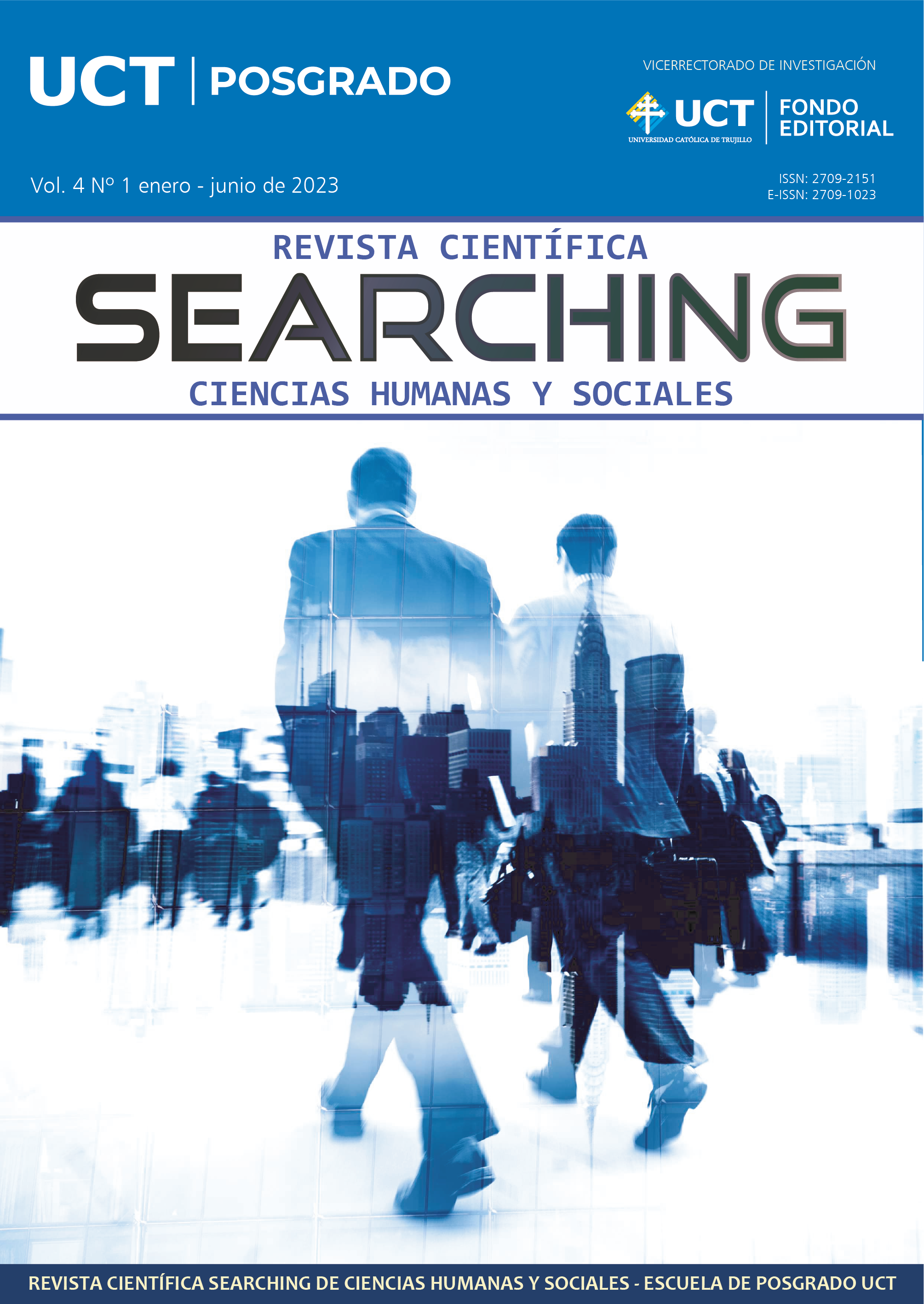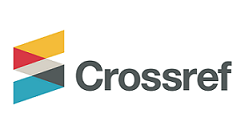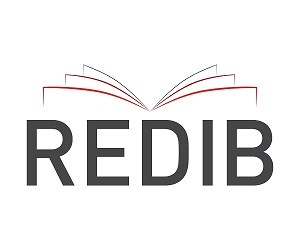Inteligencia emocional y rendimiento académico en universitarios: Revisión sistemática y metaanálisis
DOI:
https://doi.org/10.46363/searching.v4i1.7Palabras clave:
Educación universitaria, inteligencia emocional, metaanálisis, rendimiento académicoResumen
En esta revisión sistemática y meta-análisis sobre la inteligencia emocional (IE) y el rendimiento académico (RA) en universitarios, se realizó usando el diagrama PRISMA donde se encontraron 560 962 publicaciones, posteriormente se redujeron a 57 artículos y para ser procesados se seleccionaron un total de k = 31 estudios. Los resultados fueron: coeficientes r-to-z de Fisher: -0,4177 y 1,8216, las estimaciones fueron positivas (90 %). El coeficiente de Fisher fue = 0,3849 (IC del 95 %: 0,2370 a 0,5328), La prueba Q de Cochran dio como resultado que los datos son heterogéneos Q (30) = 867,9364, p < 0,0001, tau² = 0,1684, I² = 97,4682%). Se concluyó de acuerdo con los estudios revisados que la IE es un factor que permite predecir un buen rendimiento en los contextos educativo y laboral. Se acepta que no hay un consenso definido sobre lo que es la IE ya que existen varios modelos debido a esto la correlación entre la IE y el RA en este estudio oscila en el intervalo 0.24 a 0.53, siendo una correlación positiva que varía entre débil y media, se infiere que no hay buen constructo teórico único para definir la IE. Se encontraron trabajos de investigación con correlaciones altas de entre 0.6 a 0.9 las cuales tienen sesgo de problema de una baja conducta responsable en investigación.
Citas
Alenezi, A., Moustafa,S. y Gawad ,E. (2020). Predicting effect of emotional-social intelligence on academic achievement of nursing students. African Journal of Health Professions Education, 12(3), 144. http://dx.doi.org/10.7196/ajhpe.2020.v12i3.1365.
Alonso-Aldana, R., Gaytán-Martínez, Z., Flores-Reyes, A. y Gutiérrez, T., Helga, K. (2020). Emotional competences relationship and academic performance in university students. Journal of Teaching and Educational Research, 6(7), 10-16. https://www.ecorfan.org/spain/researchjournals/Docencia_e_Investigacion_Educativa/vol6num17/Journal_of_Teaching_and_Educational_Research_V6_N17_2.pdf
Ariza-Hernández, M. L. (2017). Influencia de la inteligencia emocional y los afectos en la relación maestro-alumno, en el rendimiento académico de estudiantes de educación superior. Educación y Educadores, 20(2), 193-
https://doi.org/10.5294/edu.2017.20.2.2
Akpur, U. (2020). A systematic review and meta-analysis on the relationship between emotional intelligence and academic achievement. Educational Sciences: Theory and Practice, 20(4), 51 - 64.
Brackett,M. y Salovey,P. (2006). Measuring emotional intelligence with the Mayer-Salovery-Caruso Emotional Intelligence Test (MSCEIT). Psicothema, 18(1), 34-41 https://www.redalyc.org/pdf/727/72709505.pdf
Bar-On, R. (2004). The Bar-On Emotional Quotient Inventory (EQ-i): Rationale, description, and summary of psychometric properties. In Glenn Geher (Ed.), Measuring emotional intelligence: Common ground and controversy (pp. 111-142). Hauppauge, NY: Nova Science Publishers.
Bello, Z. (2019). La inteligencia emocional en la educación superior. Una experiencia preliminar. Emotional intelligence inhigher education. Revista Cubana de Educación Superior, 38, 1–27. http://www.rces.uh.cu/index.php/RCES/article/view/338
Casanova, J., Benedicto, S., Luna, F. y Maldonado, C. (2016). Burnout, inteligencia, emocional y rendimiento académico: un estudio en alumnado de medicina. ReiDoCrea,5(2),1-6.
Carrasco, I. (2013). Inteligencia emocional y rendimiento académico en estudiantes universitarios de Farmacia y Bioquímica en Huancayo. Apuntes de Ciencia & Sociedad, 3(1), 36-50. https://dialnet.unirioja.es/servlet/articulo?codigo=5124781
Costa, A., y Faria, L. (2020). Implicit Theories of Emotional Intelligence, Ability and Trait-Emotional Intelligence and Academic Achievement. Psychological Topics, 28(1), 43-61. https://doi.org/10.31820/pt.29.1.3
De los Dolores, M., del Rosal, M., Romero, N., Villegas, K., y Lorenzo, M. (2013). Emotional intelligence and its relationship with gender, academic performance and intellectual abilities of undergraduates. Electronic Journal of Research in Educational Psychology, 11(2), 395–412. https://doi.org/10.14204/ejrep.30.12204
Del Rosal, I., Moreno-Manso, J., y Bermejo, M. (2018). Inteligencia emocional y rendimiento académico en futuros maestros de la Universidad de Extremadura. Profesorado: Revista de Curriculum y Formación del Profesorado, 22(1), 257-275. https://dialnet.unirioja.es/servlet/articulo?codigo=6343790
Duarte, J. (2003). Ambientes de aprendizaje: una aproximación conceptual. Estudios Pedagógicos, 29, 97-113.
Espino-Díaz, L.; Fernández Caminero, G.; Hernández-Lloret, C.-M.; González-González, H., Álvarez-Castillo, J.-L. (2021). Emotional Intelligence and Executive Functions in the Prediction of Prosocial Behavior in High School Students. An InterDisciplinary Approach between Neuroscience and Education. Chilren, 8(9), 759. https://doi.org/10.3390/children8090759
Fernández-Lasarte, O., Ramos-Díaz, E., y Sáez, I. (2019). Rendimiento académico, apoyo social percibido e inteligencia emocional en la universidad. European Journal of Investigation in Health, Psychology and Education, 9(1), 39-49. https://doi.org/10.30552/ejihpe.v9i1.315
Ferragut, M. (2012). Inteligencia emocional, bienestar personal y rendimiento académico en preadolescentes. Latinoamericana de Psicología, 44(3),95-104. https://www.redalyc.org/articulo.oa?id=80525022008
Goleman, D. (1998). La práctica de la inteligencia emocional. Barcelona: Kairós.
Haddaway, N., Page, M., Pritchard, C.., y McGuinness, L. (2022). PRISMA2020: An R package and Shiny app for producing PRISMA 2020-compliant flow diagrams, with interactivity for optimised digital transparency and Open Synthesis. Campbell Systematic. https://doi.org/10.1002/cl2.1230
Hernández Sampieri, R., Fernández, C. y Baptista, P. (2006). Análisis de los datos cuantitativos. Metodología de la
investigación. (6ª ed). México D.F.: McGraw-Hill.
Iqbal J, Qureshi N, Ashraf ,M., Rasool S., Asghar M. (2021) The Effect of Emotional Intelligence and Academic Social Networking Sites on Academic Performance During the COVID-19 Pandemic. Psychol Res Behav Manag. 14, 905-920 https://doi.org/10.2147/PRBM.S316664
Keshavarz, N., Amini, M., Mani, A., Nabeiei, P., Saffari, Z., y Jafari, M. (2014). A study on the relationship between emotional intelligence and academic achievement in students of Shiraz University of Medical Sciences. Interdisciplinary. Journal of Virtual Learning in Medical Sciences, 5(3), 70-77.
Linares-Espinós, E., Hernández,V., Domínguez-Escrig,,J. ,Fernández-Pello,S. , Hevia,V. , Mayor,J. , Padilla-Fernández,B. y Ribal,M., (2018) Metodología de una revisión sistemática. Actas Urológicas Españolas, 42(8), 499-506. https://doi.org/10.1016/j.acuro.2018.01.010
MacCann, C., Jiang, Y., Brown, L. Double, K., Bucich, M., y Minbashian, A. (2020). Emotional intelligence predicts academic performance: A meta- analysis. Psychological Bulletin, 146(2), 150–186. https://doi.org/10.1037/bul0000219
Mayer, J., Salovey, P., Caruso, D., y Sitarenios, G. (2001). Emotional intelligence as a standard intelligence. Emotion, 1, 232-242. https://doi.org/10.1037/15283542.1.3.232
Melese, A. (2018). First-Year College Students’ Emotional Intelligence and Help-Seeking Behaviours as Correlates of their Academic Achievement. Journal of Student Affairs in Africa, 6(2),29–50. https://doi.org/10.24085/jsaa.v6i2.2515
Morales Rodríguez, A. M., Morales Rodríguez, F. M., Pérez, J. y García, B. (2017). Diferencias en empatía e inteligencia emocional en función del rendimiento académico. European Journal of Child Development, Education and Psychopathology, 5(1), 45–52. https://doi.org/10.30552/ejpad.v5i1.46
Niño, J., García, E., y Caldevilla, D. (2017). Inteligencia emocional y educación universitaria: una aproximación. Revista de Comunicación de la SEECI, 43, 15–27. https://doi.org/10.15198/seeci.2017.43.15-27
Páez, M., y Castaño, J. (2015). Inteligencia emocional y rendimiento académico en estudiantes universitarios [Emotional intelligence and academic performance in undergraduate students]. Psicología desde el Caribe, 32(2), 268–285. https://doi.org/10.14482/psdc.32.2.5798
Perera, H., y Di Giacomo, M. (2013). The relationship of trait emotional intelligence with academic performance: A meta-analytic review. Learning and Individual Differences, 28, 20-33. https://doi.org/10.1016/j.lindif.2013.08.002
Puertas- Molero, P., Zurita-Ortega, F., Chacón-Cuberos, R., Castro-Sánchez, M., Ramírez-Granizo, I., y González Valero, G. (2020). La inteligencia emocional en el ámbito educativo: un meta-análisis. Anales de Psicologìa, 36(1), 84–91. https://doi.org/10.6018/analesps.345901
Ranjbar, H., Khademi, S. y Areshtanab, H. (2017). The relation between academic achievement and emotional intelligence in Iranian students: A meta-analysis. Acta Facultatis Medicae Naissensis, 34(1):65-76. https://doi.org/10.1515/afmnai-2017-0008
Rojas, L., Arias, D., Norabuena, R., Mescua, A., Palacios, J., y Caurcel, M. (2019). Cociente emocional de los estudiantes de Administración y Gestión Comercial de una universidad privada. Apuntes Universitarios, 9(1),1–18. https://doi.org/10.17162/au.v9i1.346
Rodríguez de Alba, U. y Suárez, Y. (2012). Relación entre Inteligencia Emocional depresión y rendimiento académico en estudiantes de psicología. Psicogente,15(28), 348-359. https://www.redalyc.org/pdf/4975/497552361011.pdf
Shibila, S. y Sannet,T. (2020). Emotional Intelligence and Achievement Motivation among College Students. International Journal of Trend in Scientific Research and Development, 4(6), 378-380. https://www.ijsr.net/archive/v7i10/ART20191690.pdf
Sajjad, U., Mumtaz, A., y Nosheen , F. ( 2018). The relationship between emotional intelligence, library anxiety, and academic achievement among the university students. Journal of Librarianship and Information Science 52(1), 237-248. https://doi.org/10.1177/0961000618790629
Salcedo, C. (2017). Inteligencia emocional y rendimiento académico en estudiantes de la Universidad Continental, Huancayo. Apuntes de ciencia & sociedad. 7(2), 125-132. https://doi.org/10.18259/acs.2017017
Salovey, P., y Mayer, J. (1990). Emotional intelligence. Imagination, Cognition and Personality, 9(3), 185–211. https://doi.org/10.2190/DUGG-P24E-52WK-6CDG
Sánchez-Álvarez, N., Extremera, N. y Fernández-Berrocal, P. (2016). La relación entre inteligencia emocional y bienestar subjetivo: una investigación metaanalítica. The Journal of Positivy Psicology, 11, 276–285. https://doi.org/10.1080/17439760.2015.
Sánchez, J. (2010). Cómo realizar una revisión sistemática y un meta-análisis. Child Abuse and Neglect, 72, 360–369. https://doi.org/10.1016/j.chiabu.2017.08.025
Suleman, Q., Hussain, I., Syed, M., Parveen, R., Lodhi, I. y Mahmood, Z. (2019) Association between emotional intelligence and academic success among undergraduates: A cross-sectional study in KUST, Pakistan. PLoS ONE, 14(7): e0219468. https://doi.org/10.1371/journal.pone.0219468
Ugwuanyi, C., Okeke, C. y Asomugha, C., (2020). Prediction of learners’ mathematics performance by their emotional intelligence, self-esteem, and self-efficacy. Cypriot Journal of Educational Science, 15(3), 492-501. https://doi.org/10.18844/cjes.v%vi%i.4916
Viechtbauer, W. (2010). Conducting meta-analyses in R with the metafor package. Journal of Statistical Software, 36(3), 1-48. https://www.jstatsoft.org/article/view/v036i03
Zeidner, M., Matthews, G. y Roberts, R. (2004). Emotional Intelligence at the workplace: a critical review. Applied Psychology, 53(3), 371-399. https://doi.org/10.1111/j.1464-0597.2004.00176.x















